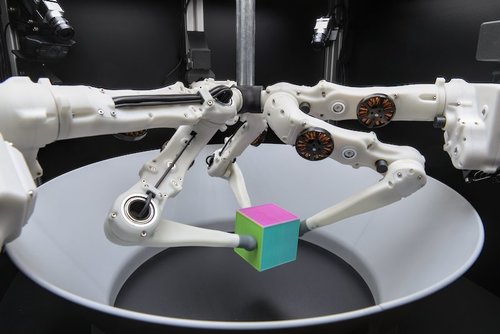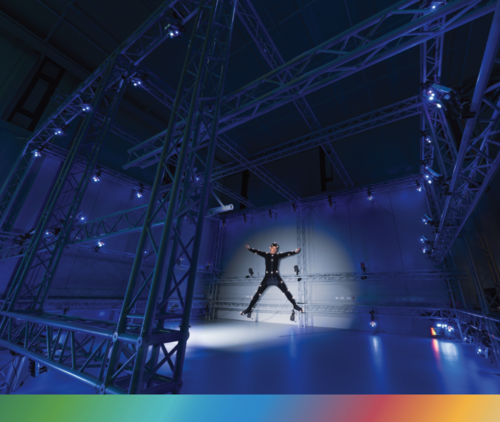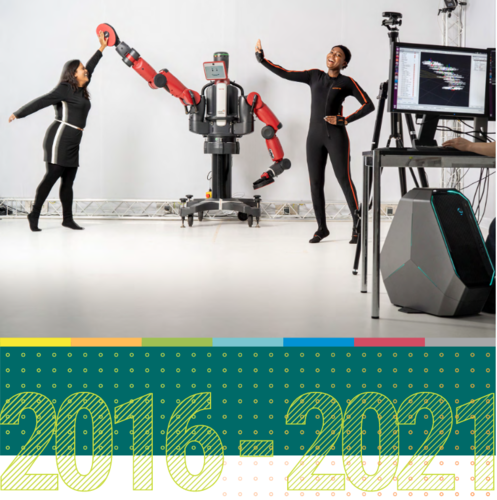2023
Bottou, L., Schölkopf, B.
Borges und die Künstliche Intelligenz
2023, published in Frankfurter Allgemeine Zeitung, 18 December 2023, Nr. 294 (misc)
2022
Wang, H., Jin, Z., Cao, J., Fung, G. P. C., Wong, K.
Inconsistent Few-Shot Relation Classification via Cross-Attentional Prototype Networks with Contrastive Learning
2022 (misc)
2021
Prabhoo, S., Bauer, S., Schwab, P.
NCoRE: Neural Counterfactual Representation Learning for Combinations of Treatments
2021 (misc)
Abdulsamad, H., Dorau, T., Belousov, B., Zhu, J., Peters, J.
Distributionally Robust Trajectory Optimization Under Uncertain Dynamics via Relative-Entropy Trust Regions
2021 (misc)
Arvanitidis, G., González Duque, M., Pouplin, A., Kalatzis, D., Hauberg, S.
Pulling back information geometry
2021 (misc)
Wüthrich*, M., Widmaier*, F., Bauer*, S., Funk, N., Urain, J., Peters, J., Watson, J., Chen, C., Srinivasan, K., Zhang, J., Zhang, J., Walter, M. R., Madan, R., Schaff, C., Maeda, T., Yoneda, T., Yarats, D., Allshire, A., Gordon, E. K., Bhattacharjee, T., Srinivasa, S. S., Garg, A., Buchholz, A., Stark, S., Steinbrenner, T., Akpo, J., Joshi, S., Agrawal, V., Schölkopf, B.
A Robot Cluster for Reproducible Research in Dexterous Manipulation
2021, *equal contribution (misc)
Shao, K., Villegas, J. F. R., Logothetis, N. K., Besserve, M.
A model of Ponto-Geniculo-Occipital waves supports bidirectional control of cortical plasticity across sleep-stages
2021 (misc) In preparation
Georgiev, B., Franken, L., Mukherjee, M., Arvanitidis, G.
On the Impact of Stable Ranks in Deep Nets
2021 (misc)
Allshire, A., Mittal, M., Lodaya, V., Makoviychuk, V., Makoviichuk, D., Widmaier, F., Wüthrich, M., Bauer, S., Handa, A., Garg, A.
Transferring Dexterous Manipulation from GPU Simulation to a Remote Real-World TriFinger
2021 (misc)
2020
Chicharro, D., Besserve, M., Panzeri, S.
Causal learning with sufficient statistics: an information bottleneck approach
2020 (misc) Submitted
Tosatto, S., Stadtmueller, J., Peters, J.
Dimensionality Reduction of Movement Primitives in Parameter Space
2020 (misc)
Ke, R., Bilaniuk, O., Goyal, A., Bauer, S., Larochelle, H., Schölkopf, B., Mozer, M. C., Pal, C., Bengio, Y.
Learning Neural Causal Models from Unknown Interventions
2020 (misc)
2019
Park, M., Jitkrittum, W.
ABCDP: Approximate Bayesian Computation Meets Differential Privacy
2019 (misc) Submitted
Scientific Report 2016 - 2018
2019 (mpi_year_book)
Pfister, N., Bauer, S., Peters, J.
Identifying Causal Structure in Large-Scale Kinetic Systems
2019 (misc)
Tanneberg, D., Rueckert, E., Peters, J.
Learning Algorithmic Solutions to Symbolic Planning Tasks with a Neural Computer Architecture
2019 (misc)
2018
Schölkopf, B.
Die kybernetische Revolution
S{\"u}ddeutsche Zeitung, 2018, (15-Mar-2018) (misc)
Veiga, F. F., Edin, B. B., Peters, J.
In-Hand Object Stabilization by Independent Finger Control
2018 (misc)
Garreau, D., Jitkrittum, W., Kanagawa, M.
Large sample analysis of the median heuristic
2018 (misc) In preparation
2017
Bousquet, O., Gelly, S., Tolstikhin, I., Simon-Gabriel, C. J., Schölkopf, B.
From Optimal Transport to Generative Modeling: the VEGAN cookbook
2017 (misc)
Belousov, B., Peters, J.
f-Divergence constrained policy improvement
2017 (misc)
2016
Empirical Inference (2010-2015)
Scientific Advisory Board Report, 2016 (misc)
Mittal, A., Raj, A., Namboodiri, V. P., Tuytelaars, T.
Unsupervised Domain Adaptation in the Wild : Dealing with Asymmetric Label Set
2016 (misc)
2007
Wichman, F., Ernst, MO.
Mathematik der Wahrnehmung: Wendepunkte
Akademische Mitteilungen zw{\"o}lf: F{\"u}nf Sinne, pages: 32-37, 2007 (misc)
2004
Schölkopf, B.
Statistische Lerntheorie und Empirische Inferenz
Jahrbuch der Max-Planck-Gesellschaft, 2004, pages: 377-382, 2004 (misc)
Scientific Report 2016 - 2021
(mpi_year_book)




